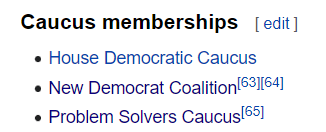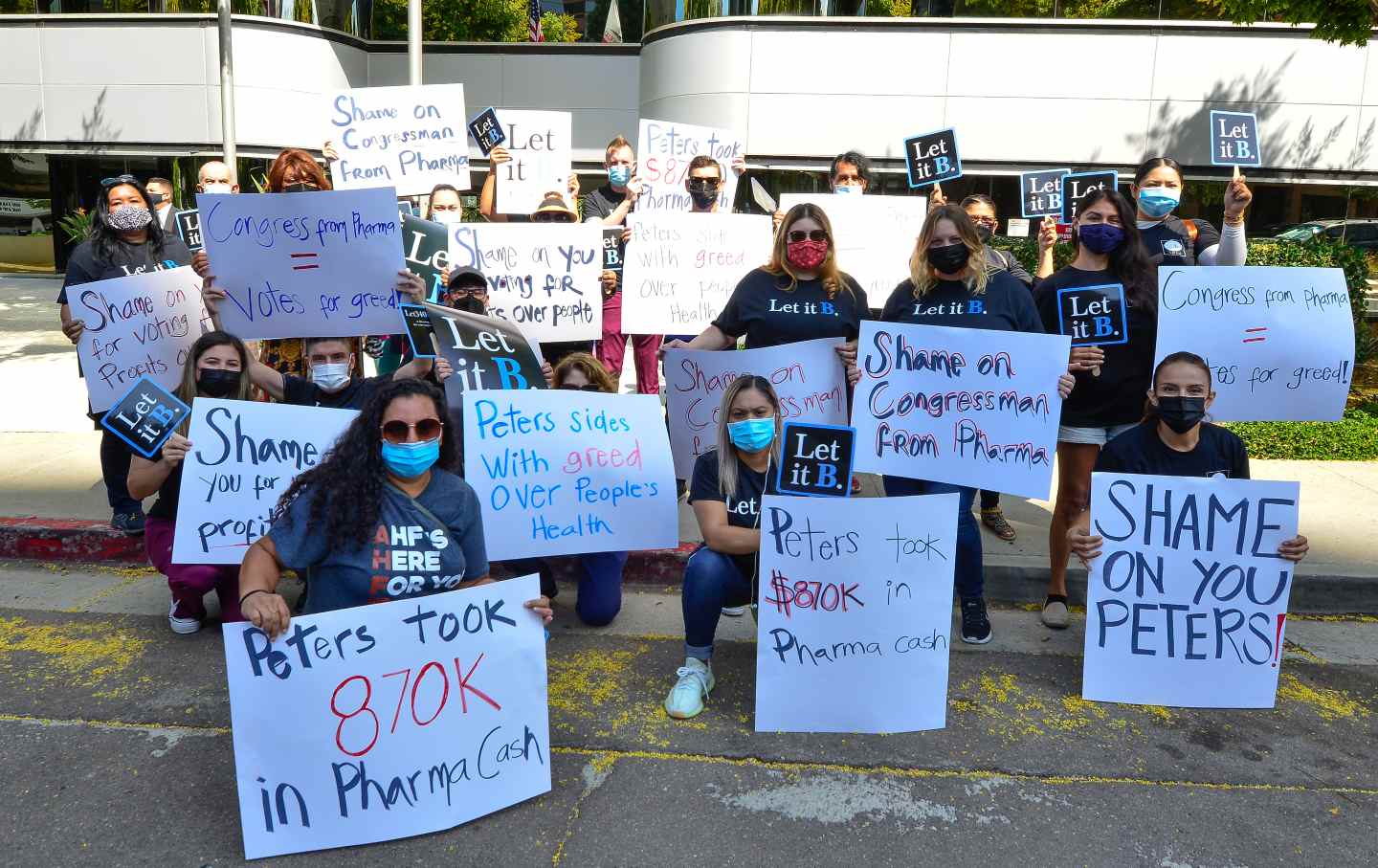General Discussion
Related: Editorials & Other Articles, Issue Forums, Alliance Forums, Region ForumsHouse Budget Committee votes to pass the $3.5 trillion spending bill
CNN)The House Budget Committee voted Saturday to pass the $3.5 trillion spending bill out of committee and send it to the House floor.
The vote was 20 to 17 with Democratic Rep. Scott Peters of California joining Republicans to vote against the bill. It came as a necessary step for the bill to reach the full House floor, where it can be amended.
Democrats have been struggling to pass President Joe Biden's economic agenda, including the massive tax and spending bill that would expand education, health care and childcare support, address the climate crisis and make further investments in infrastructure.
The bill has raised concerns among moderates who worry some of the measures, including on drug pricing and climate, go too far, as progressives say they've already compromised enough. Republicans are united in their opposition to it.
(snip)
https://www.cnn.com/2021/09/25/politics/house-budget-committee-biden-economic-agenda/index.html
P.S. CNN still hasn't gotten around to mentioning that 17 American winners of the Nobel Prize in economics came out in support of the full 3.5 trillion dollar reconciliation bill.
Seventeen recipients of the Nobel Prize in economics signed a letter in support of President Joe Biden’s $3.5 trillion Build Back Better package on Monday. They refuted arguments made by Republicans and moderate Democrats that the massive "human infrastructure" bill—which would provide funding to expand education, health care, child care, and climate efforts—is far too expensive.
The economists also came out in support of a proposed $2.9 trillion increase in taxes to pay for the program. The new rates, which would mostly impact the wealthiest Americans and large, multinational corporations, would represent the largest tax increase in decades.
“While we all have different views on the particulars of various economic policies, we believe that key components of this broader agenda are critical—including tax reforms that make our tax system more equitable and that enable our system to raise the additional funds required to facilitate necessary public investments and achieve our collective goals,” the economists wrote. “Because this agenda invests in long-term economic capacity and will enhance the ability of more Americans to participate productively in the economy, it will ease longer-term inflationary pressures.”
The signees, who are all currently employed as professors at the nation’s top universities, include Treasury Secretary Janet Yellen’s husband George Akerlof, Sir Angus Deaton, Peter Diamond, Robert Engle, Oliver Hart, Daniel Kahneman, Eric S. Maskin, Daniel McFadden, Paul Milgrom, Roger Myerson, Edmund S. Phelps, Paul Romer, William Sharpe, Robert Shiller, Christopher Sims, Robert Solow, and Joseph Stiglitz.
https://fortune.com/2021/09/21/nobel-prize-winning-economists-back-joe-biden-build-back-better-plan/
If anyone has a logical explanation as to why the corporate media conglomerates haven't reported on the Nobel Prize winners in economics supporting the full 3.5 trillion please share it.
msongs
(67,360 posts)Response to msongs (Reply #1)
Chin music This message was self-deleted by its author.
msongs
(67,360 posts)if I don't get my way nobody gets anything
Uncle Joe
(58,282 posts)Do you believe the corporate media is considering the greater good by not reporting or covering that story?
msongs
(67,360 posts)Uncle Joe
(58,282 posts)msongs
(67,360 posts)Uncle Joe
(58,282 posts)misleading the American People by omitting critical information regarding the issue of economics; which affects all our lives so profoundly?
brush
(53,741 posts)The bipartisan bill I believe will be voted on and pass on Monday. I just hope with its passing, moderate Dems don't lose interest in passing the larger bill later in the week.
Celerity
(43,102 posts)agenda within the reconciliation bill.
Josh Gottheimer of New Jersey
Carolyn Bourdeaux of Georgia
Filemon Vela of Texas
Jared Golden of Maine
Henry Cuellar of Texas
Vicente Gonzalez of Texas
Ed Case of Hawaii
Jim Costa of California
Scott Peters of California
Kurt Schrader of Oregon
Stephanie Murphy of Florida
https://problemsolverscaucus.house.gov/members

He also is part of a trio of House Democrats in the Energy committee that oppose allowing Medicare to negotiate drug prices.
Pharma CEOs, lobbyists showered Democrat with cash after his attempt to torpedo Pelosi’s drug pricing bill
https://www.statnews.com/2021/07/20/pharma-peters-cash-after-torpedo-pelosi-bill/
Has Big Pharma Bought Enough Democrats to Derail Biden’s Plan?
If Democrats allow the party’s Manchinema wing to derail prescription drug pricing reforms, they could lose their ability to govern.
https://www.thenation.com/article/politics/pharma-democrats-bribery/

A West Health/Gallup survey in June put the level of Democratic support for the proposal at 97 percent, and announced that “nearly all Democrats…support empowering the federal government to negotiate lower prices of brand-name prescription drugs covered by Medicare.” Since polls have margins of error, it’s reasonable to speculate about whether any grassroots Democrats oppose using the power of government to cut drug prices.
Unfortunately, a handful of congressional Democrats do oppose acting on the issue. Because Democrats control the House and Senate by narrow margins, this opposition threatens necessary reforms. If that threat becomes a reality, it could doom Democratic prospects for retaining control of Congress in 2022. President Biden acknowledged as much in his inaugural address, saying, “This is certain, I promise you: We will be judged, you and I, by how we resolve these cascading crises of our era.” That judgment will be harsh if Democrats fail to deliver on an issue so broadly popular as lowering drug prices.
Yet, when the House Energy and Commerce Committee reviewed a proposal for government negotiations to lower drug prices, three Democrats—Kathleen Rice of New York, Scott Peters of California, and Kurt Schrader of Oregon—voted “no.” Their votes, in combination with Republican “no” votes, created a tie that blocked approval of the reform by the key committee. While things may get sorted out in the House, circumstances in the Senate took a turn for the worse on September 15, when Arizona Democrat Kyrsten Sinema reportedly informed Biden that she’s opposed to the drug-price reform proposals that Democrats ran and won on in 2020. Sinema’s resistance to the drug reform component of the Senate budget reconciliation bill, in combination with the more generalized rejection of the measure by West Virginia Democrat Joe Manchin, has inspired speculation about whether Biden might be forced to accept a deep cut in the $3.5 trillion proposal—which, as outlined by Senate Budget Committee chair Bernie Sanders, relies on funds saved by negotiating lower drug prices to pay for Medicare expansion.
snip
These people are complaining about 'Omg, how is it going to be paid for?' (which it is, that is a false-frame by them) BUT THEN turning around and killing off huge parts of the very measures THAT FUND IT.